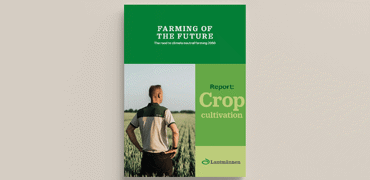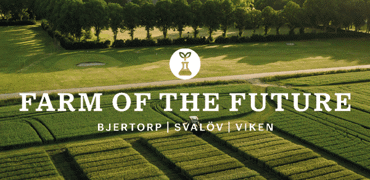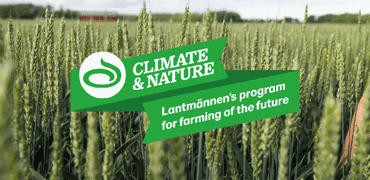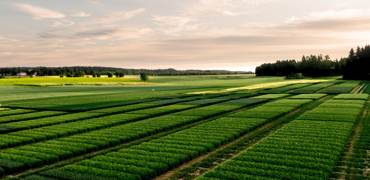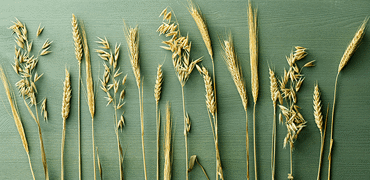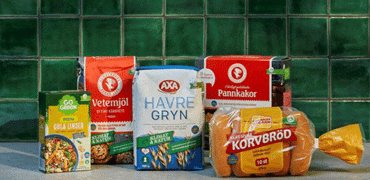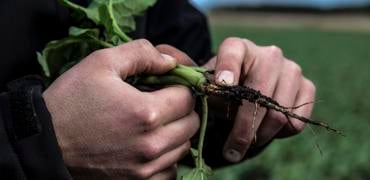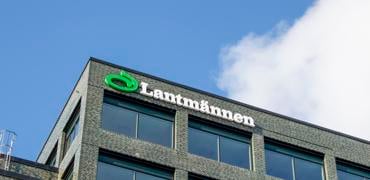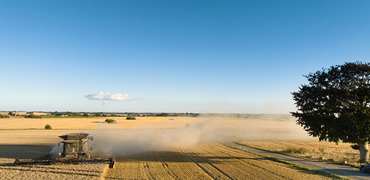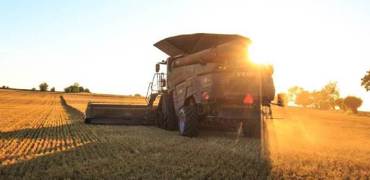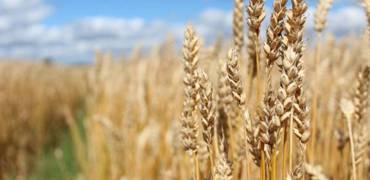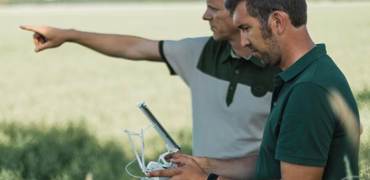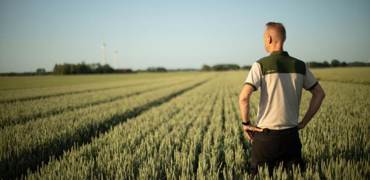Increased preparedness provides better sustainability in the food value chain
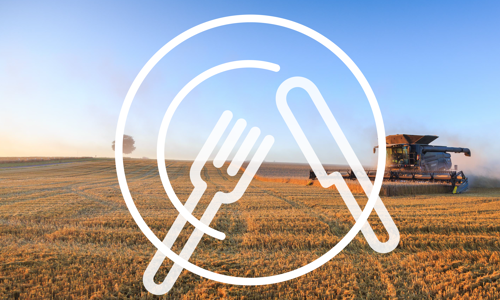
The issue of crisis preparedness has received increasing attention due to geopolitical tension and accelerating climate change. Strengthened preparedness also provides better conditions for managing the transition to sustainability. Lantmännen’s Director Group Strategy Patrik Myrelid describes Lantmännen’s role and positions.
Recently, a seminar with focus on Swedish agriculture was held in Riksdagen, the Swedish Parliament, where preparedness was high on the agenda. At Lantmännen, we can contribute with unique knowledge about how the entire food system is connected in Sweden, through our business operations from field to fork. Against this background, I presented our view and our proposals for strengthened Swedish food preparedness.
Sweden has not had a strategy for food security in several decades. When we now see that food preparedness is becoming increasingly important, there is a lot of catching up to do. With the strategic objective to have the population's calorie needs covered for three months, major changes and long-term work are required to build up stocks and systems. This involves making decisions that will affect us for years to come. Several government inquiries are now underway that touch on the subject, not least Ingrid Petersson's investigation “A new food preparedness” which was presented on the 31st of January 2024. Lantmännen has participated actively in the dialogue and we look forward to important conclusions being presented to the government. On the 19th of December, the parliamentary Swedish Defence Commission presented its report on the rebuilding of civil defence., There they point out, among other things, that agriculture needs to be adapted to a changing climate, that domestic primary production and food processing are important, and that domestic production or storage of input goods for the food supply needs to be built up.

Photo: Anne Helgesson / Hushållningssällskapet
In Sweden, there are two main raw materials that form the basis of the food system in terms of volume and calories; one is grain and the other is grass as feed for animals that provide meat and milk. Lantmännen has a crucial role in the value chains for both of these raw materials.
The most important thing we can do to build preparedness is creating conditions to keep existing food flows going. The focus should be on the early stages of the food value chain, creating opportunities to maintain domestic product flows with some flexibility. Critical input goods for agriculture are mineral fertilizers, seeds, plant protection, fuel and animal feed materials. In addition, there is a need for stocks of grain, including rapeseed and dried pulses, which can be processed into food, feed and biofuel. Building up and maintaining reserve stocks for the population is ultimately the responsibility of the state. Companies like Lantmännen can contribute with knowledge and contracted execution.
We can get started quickly using existing infrastructure, but in the long term, physical storage capacity needs to be expanded both on the farms and near the industry that will process the raw material. Input goods to be used on the farms should be stored there. Proximity principles are important to avoid extensive logistics flows in the event of a crisis. In order to stimulate such a change, compensation is needed both for infrastructure and for maintaining turnover stock.
The most important thing we can do to build preparedness is to create the conditions to keep existing food flows going.
Increasing preparedness and building more self-sufficiency goes hand in hand with increased sustainability in line with Lantmännen's vision Farming of the Future. We have good conditions in Sweden to use fossil-free energy sources and increase the use of renewable fuels in agriculture, under the right conditions. At Lantmännen, we already use a lot of bioenergy in our industrial processes and continue to develop our ethanol production for fuel. We also need to adapt to a changing climate. Where significant investments are required in the future to cope with extreme weather and continue to have a good production level. The Federation of Swedish Farmers (LRF) has recently calculated the investment requirements in collaboration with Lantmännen, which amounts to between SEK 80 and 85 million, of which irrigation and drainage are an important component. Developing domestic, fossil-free production of mineral fertilizers is a prerequisite for achieving climate goals while being a crucial piece of the puzzle to strengthen our preparedness.
Lantmännen’s goal is to increase production, while achieving climate neutrality in farming by 2050, which combined with expanded emergency storage creates resilience. Now it is up to the politicians to arrive at quick decisions so that stock building can begin. In order for it to be carried out in an orderly manner, stocks must be built up over a longer period of time. Time and money are critical factors here.






